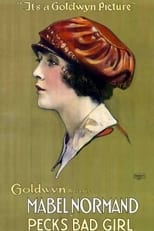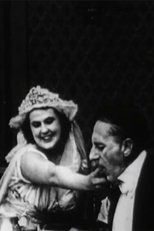

Edward M. Favor
Born: August 29, 1856
Died: January 10, 1936
Died: January 10, 1936
From Wikipedia
Edward Addison Favor (August 29, 1856 – January 10, 1936),
who was billed as Edward M. Favor or Ed. M. Favor, was an American vaudeville
comedian, singer, musical theatre performer and pioneer recording artist, who
was one of the most popular stars of the late nineteenth and early twentieth
centuries.
He was born in New York, the son of Franklin Cushman Favor
and his wife Lydia, née Lowe. Suggestions that the family name was originally LeFevre
have been discounted.
He began working in vaudeville as a light comedian in about
1876, and in or before 1877 married Edith Sinclair (1857-1942), who had been a
successful child actress. Billed as Favor and Sinclair, the couple worked
together as a duo and in musical comedies. In 1887 they appeared together as
members of the Edith Sinclair Comedy Company in A Box of Cash, in which he
played an Irish-American character. Despite the popularity of his Irish character
roles, there is no evidence that he had any Irish ancestry. In 1893 he and his
wife appeared on Broadway in Edward E. Rice's long-running burlesque 1492 Up To
Date.
He made one of his first recordings in 1893, of "The
Commodore Song", taken from his previous show, Ship Ahoy. Among his other
early successes were "Say Au Revoir, But Not Goodbye" (North
American, 1894), "Daisy Bell (Bicycle Built for Two)" (Edison, 1894),
and "My Best Girl's A New Yorker" (Columbia, 1895). By the late 1890s
Favor recorded for most of the major recording companies, in between his
vaudeville commitments. In 1899, he was one of the first to record on the
Zonophone label, and in 1900 recorded for the first time for Victor Records. He
continued to appear on stage and, in 1900, was described in Broadway magazine
as "one of the best light comedians on the stage" and, with his wife,
as "one of the big attractions in vaudeville."
He continued to make successful recordings for the next
decade, sung in his "Irish-American piping tenor".[3] These included
comic numbers for Edison, Columbia and other companies, such as "Hamlet
Was A Melancholy Dane", "Who Threw The Overalls In Mrs. Murphy's
Chowder?" (1901), "On a Sunday Afternoon" (1902), "Bedelia
(The Irish Coon Song Serenade)" (1903), "I Think I Hear A Woodpecker
Knocking At My Family Tree", and "Pocahontas" (1906). He also
made recordings with his wife, Steve Porter, and the American Quartet.
He made his final recordings for Victor in 1911, and for
Edison in 1914 when he recorded "On The 7:28" and "Indoor
Sports".
Favor continued to appear in theatrical shows through the
1920s and into the early 1930s. In 1933 he appeared in the Broadway productions
of John Ferguson and Merton of the Movies, and in 1934 in America - Very Early.
He died at the age of 79 in Brooklyn in 1936.
Edward Addison Favor (August 29, 1856 – January 10, 1936),
who was billed as Edward M. Favor or Ed. M. Favor, was an American vaudeville
comedian, singer, musical theatre performer and pioneer recording artist, who
was one of the most popular stars of the late nineteenth and early twentieth
centuries.
He was born in New York, the son of Franklin Cushman Favor
and his wife Lydia, née Lowe. Suggestions that the family name was originally LeFevre
have been discounted.
He began working in vaudeville as a light comedian in about
1876, and in or before 1877 married Edith Sinclair (1857-1942), who had been a
successful child actress. Billed as Favor and Sinclair, the couple worked
together as a duo and in musical comedies. In 1887 they appeared together as
members of the Edith Sinclair Comedy Company in A Box of Cash, in which he
played an Irish-American character. Despite the popularity of his Irish character
roles, there is no evidence that he had any Irish ancestry. In 1893 he and his
wife appeared on Broadway in Edward E. Rice's long-running burlesque 1492 Up To
Date.
He made one of his first recordings in 1893, of "The
Commodore Song", taken from his previous show, Ship Ahoy. Among his other
early successes were "Say Au Revoir, But Not Goodbye" (North
American, 1894), "Daisy Bell (Bicycle Built for Two)" (Edison, 1894),
and "My Best Girl's A New Yorker" (Columbia, 1895). By the late 1890s
Favor recorded for most of the major recording companies, in between his
vaudeville commitments. In 1899, he was one of the first to record on the
Zonophone label, and in 1900 recorded for the first time for Victor Records. He
continued to appear on stage and, in 1900, was described in Broadway magazine
as "one of the best light comedians on the stage" and, with his wife,
as "one of the big attractions in vaudeville."
He continued to make successful recordings for the next
decade, sung in his "Irish-American piping tenor".[3] These included
comic numbers for Edison, Columbia and other companies, such as "Hamlet
Was A Melancholy Dane", "Who Threw The Overalls In Mrs. Murphy's
Chowder?" (1901), "On a Sunday Afternoon" (1902), "Bedelia
(The Irish Coon Song Serenade)" (1903), "I Think I Hear A Woodpecker
Knocking At My Family Tree", and "Pocahontas" (1906). He also
made recordings with his wife, Steve Porter, and the American Quartet.
He made his final recordings for Victor in 1911, and for
Edison in 1914 when he recorded "On The 7:28" and "Indoor
Sports".
Favor continued to appear in theatrical shows through the
1920s and into the early 1930s. In 1933 he appeared in the Broadway productions
of John Ferguson and Merton of the Movies, and in 1934 in America - Very Early.
He died at the age of 79 in Brooklyn in 1936.
Movies for Edward M. Favor...

Title: Peck's Bad Girl
Character: Peck
Released: September 2, 1918
Type: Movie
Minnie Penelope Peck, the village scamp of Yaptank, accompanies her father to the bank to demand the nine dollars owed him for his work as a night watchman. When the bank president refuses to pay Peck, Minnie posts a sign which states that the bank is insolvent, whereupon all of the depositors immediately demand their money. The fire department is called in to quell the mob, but things get worse when Minnie accidentally turns on the fire hose.....


Title: Miss Sticky-Moufie-Kiss
Character: Uncle Junky Wunky
Released: October 7, 1915
Type: Movie
A young husband is pleased to discover that his new wife is totally devoted to him. However, things begin to get sticky when he realizes that not only is she devoted to him, but she speaks only in baby talk and won't leave him alone for a second.
